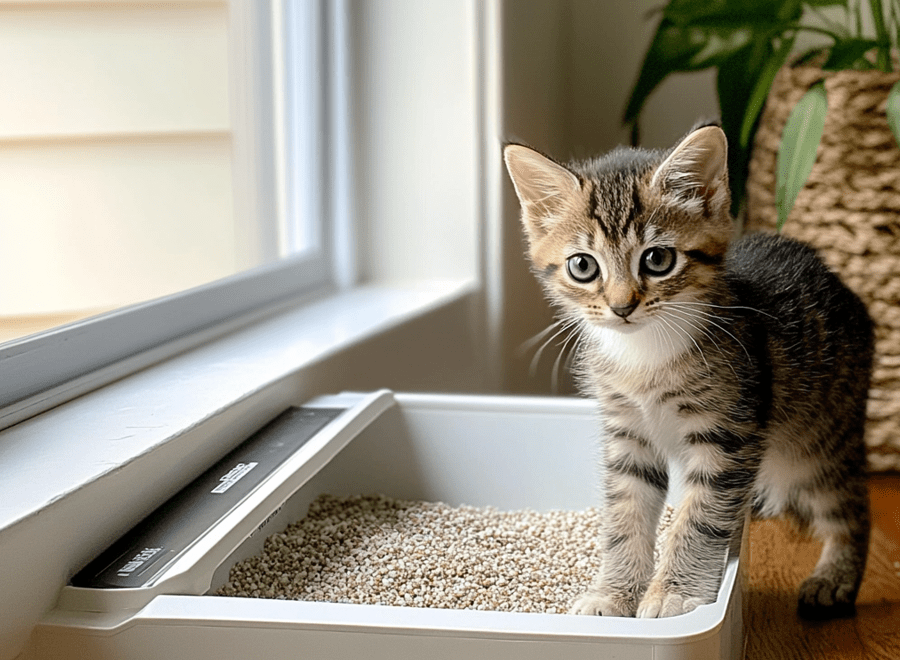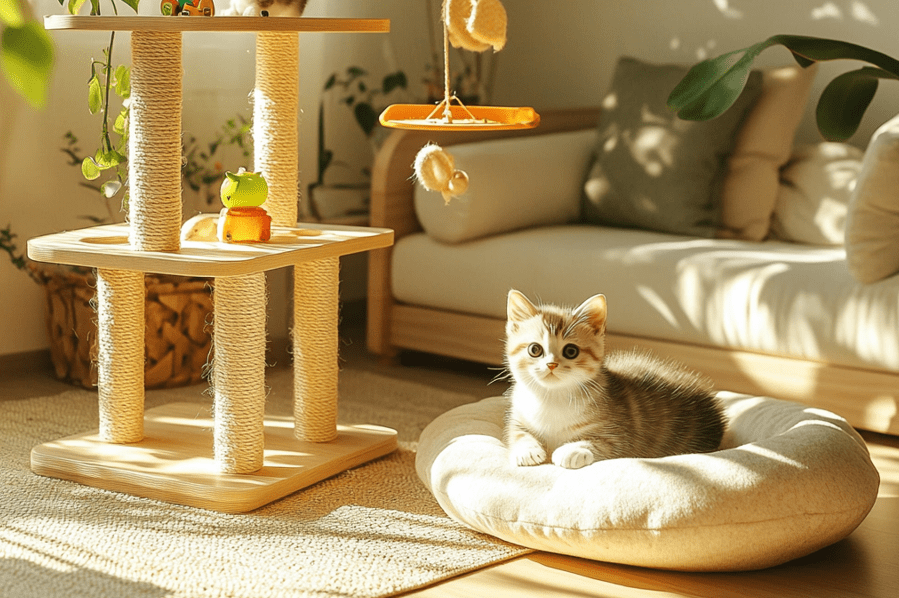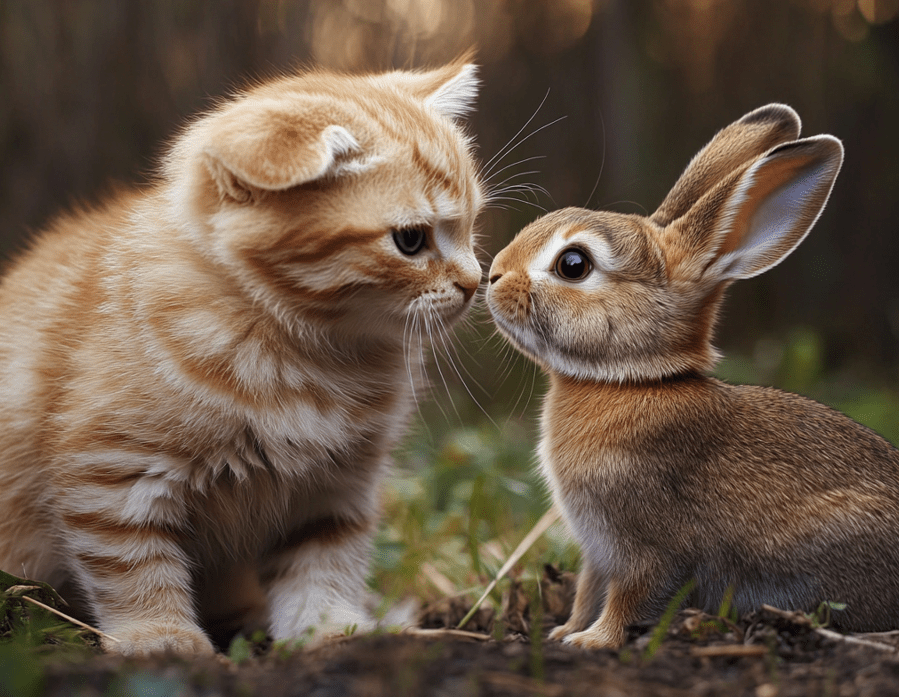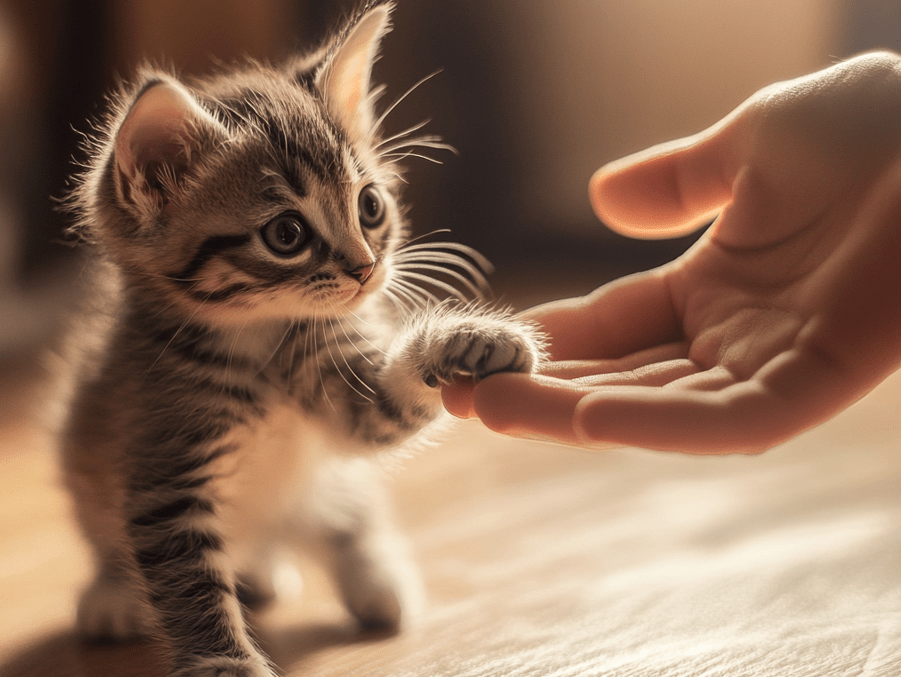
If you’re a first-time cat companion, using tips like these will help you gain the trust of your new feline or even foster an orphaned wild cat. Getting a cat to trust you can also be done with body language research, sniffing from them and avoiding triggers as much as possible. Gaining the trust of a cat is not hard, but you need an awful lot of patience and perseverance. Affectionate Behavior Like head bunting such as purring, sitting in your lap, exposing their belly, following you or playing.
Rather than a broad explanation, I tell cat owners this: Cats put other animals or people into three categories from their perspective: “You are a predator and may hurt me,” or ” “you are prey and I may hunt you” or finally my favorite — You are socially acceptable to us, we adopt you as part of our little group.
If you have just got a new cat or are wanting to make fast friends with the neighborhood stray, realize cats take time to figure out if you’re one of the good guys. This rank affects how long it would take a cat to start trusting you: be it a 1 day wait, or as much as a week or even month. It is very important to cats that they do not feel forced into contact, and to give them time to observe, appraise and slowly trust you – at their own pace.
Below are some useful tips to make your cat trust you.
To watch the summary of this article, just watch this video-
1.Let your cat smell on you
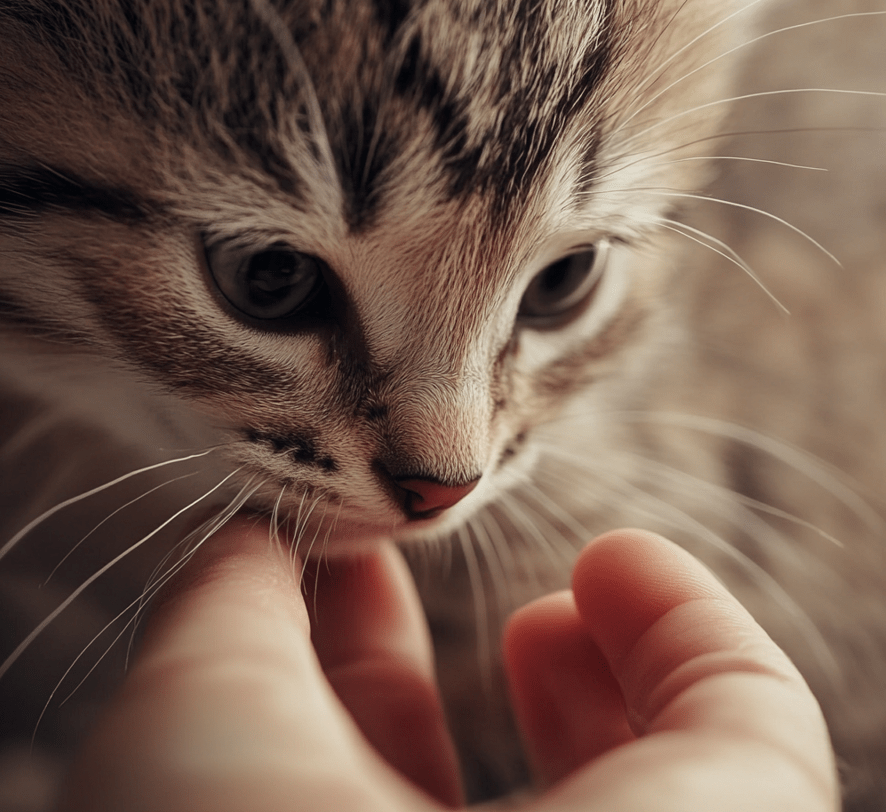
How to greet a new or timid cat: The correct way is not to approach — the cat should be given an opportunity to come up on its own. Cats start to interact with each other by smell. Cats have a veritable multitude of scent receptors all over their face and foreheads, which release pheromones— chemical signals that facilitate friendly greetings and communication among cats.
It is important that you do not make the mistake of assuming that because of this first olfactive interaction, you rush and have even more connection without release to be able to remove the cat. Handling a cat may make it feel insecure and that is not comfortable. One of the keys is to create a bond little by little; for this, you have to let the cat decide how far they want to go in your relationship.
2.Utilize Calming Pheromones

Cats produce our natural scent to communicate pheromones. A cat rubbing its face against you is releasing pheromones that mark you to it as an aggressor presence. I do not recommend using a pheromone on new kittens: they usually have no real fear to start and the attempt will muddle things up.
Kittens are usually more accepting of change and as such tend to adjust far better to new households (unless they were feral). So if your intention is to fit into the society of feral, stray and timid cats, consider using a plugin pheromone diffuser or rubbing on his peacemaking pheromones directly to hands. These pheromones will work as the natural pheromones to ensure a sense of safety in your cat.
3.Speak in a Calm and Soothing Voice to Your Cat
Talking to your cat will make them more familiar with you and associate good feelings with your presence. Cats do not understand the words you necessarily use, but cats can recognize your voice and associate some tones with positive or negative results. This association is strongest when you interact with your cat at mealtimes, playtime, or during affectionate moments.
It does not matter what you say; whether you read your emails, share this article or talk about patterns of clouds — what matters is that your voice remains calm and peaceful.
According to the study, playing cat-specific music reduced pre- and post-operative stress behaviors of cats at a veterinary clinic where away-from-home music was played. This particular music borrows frequency ranges and tempos that are used in cat-to-cat communication.
4.Establishing a Routine
New or shy cats improve in a routine environment, and use this predictability to provide comfort and acclimatization to your new friends. It may include a regular feeding schedule, playtime around the same time each day, cuddling or grooming.
On the other hand, though, you could bond with a stray cat and come to find them waiting for you at every designated feeding time.
It is important for cats to have a routine. Providing a favorite activity of theirs on a regular basis will help them feel more secure. If you are unable to keep a schedule with your cat eating and going outside, then it might be something worthwhile if you can use an automatic pet feeder or someone who specializes in taking care of pets while away.
5.Reduce Potential Stressors
One of the most essential steps for building trust is eradicating possible sources of stress for your cat. When bringing a new cat or kitten home, you do not want to just toss them into the mix with the rest of your feline household. This avoids bombarding your cat and reducing stimuli so you can both adjust slowly to each other. Choose a room where there are no noisy appliances or existing pets in the home (keep them apart until your new cat feels safe and ready for a slow intro).
Think about it this way: Sure, you can eliminate stressors from a room but that won’t bring trust. Providing your cat with key resources such as scratching posts, cat trees and appropriate toileting areas will go a long way to preventing stress and anxiety. Here are some possible symptoms or changes in your cat’s body language that may indicate stress or anxiety:
1.A head with its ears back
2.Wide eyes with dilated pupils
3.A crouched, tense posture
5.Seeking hiding places
6.Trembling or shaking
7.Aggressive behavior- scratching, biting or hissing
6.Employ Positive Reinforcement
Rewards are best known for their use in changing behaviors, ethics and as an effective training method for your kitty but also they have a special ability to build a strong bond between you and your furry friend. This method is more trust-building that strengthens the relationship between a cat and its owner by associating you as someone fun or lucrative. It helps boost the confidence of shy cats and opens up further new experiences with their humans.
This is where positive reinforcement comes in. You make your cat feel good by letting him influence his world. First you mark a behavior with the intent to reinforce it. On the other hand, if there is an undesirable behavior, you can reinforce a more appropriate alternative and reward that instead. Rewards can be in the form of treats, playtime, verbal praise or physical affection, anything that your cat enjoys.
7.Respect Their “No Touch” Areas
After you have gained enough trust for your cat to show that it wants petting, the next important thing to consider is where exactly you should start. Some common places are the cheeks, head and chin of most cats. Typically, if you let the cat come to you first, they will heft their head right against your hand and rub their body on your palm then walk themselves back and make you follow with your hand at their favorite spot.
Over time your bond will grow stronger and the cat more comfortable, they may even roll over on their back which is a sign of trust when displaying their belly. Nonetheless, you must know that the stomach, limbs and tail are body parts where even an old cat does not particularly like to be touched.
8.Slow Blinking or Squinting Your Eyes to a Cat
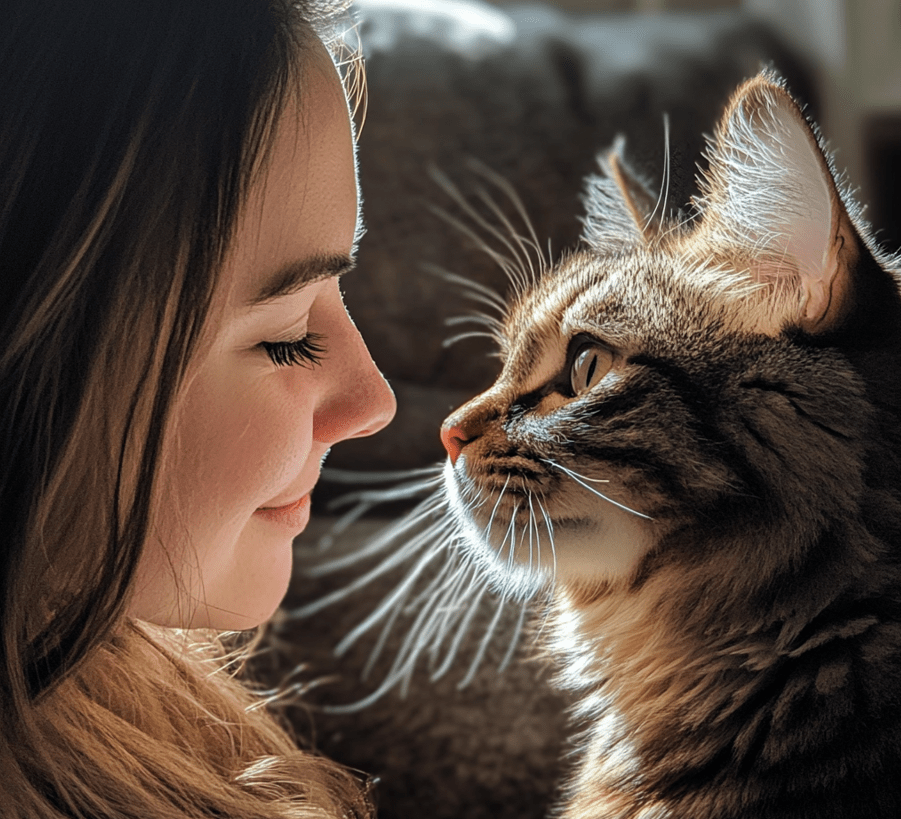
Cats close or half-close their eyes as a way of showing that they are comfortable and safe in their human companionship, as they relax when they may feel danger. You should return this behavior by sitting near your cat, squinting, and slowly closing your eyes. This type of nonverbal communication, known as the “squinty eyes” or “slow blink,” conveys good intentions and makes your fur baby feel safe.
9.Engage in Regular Playtime
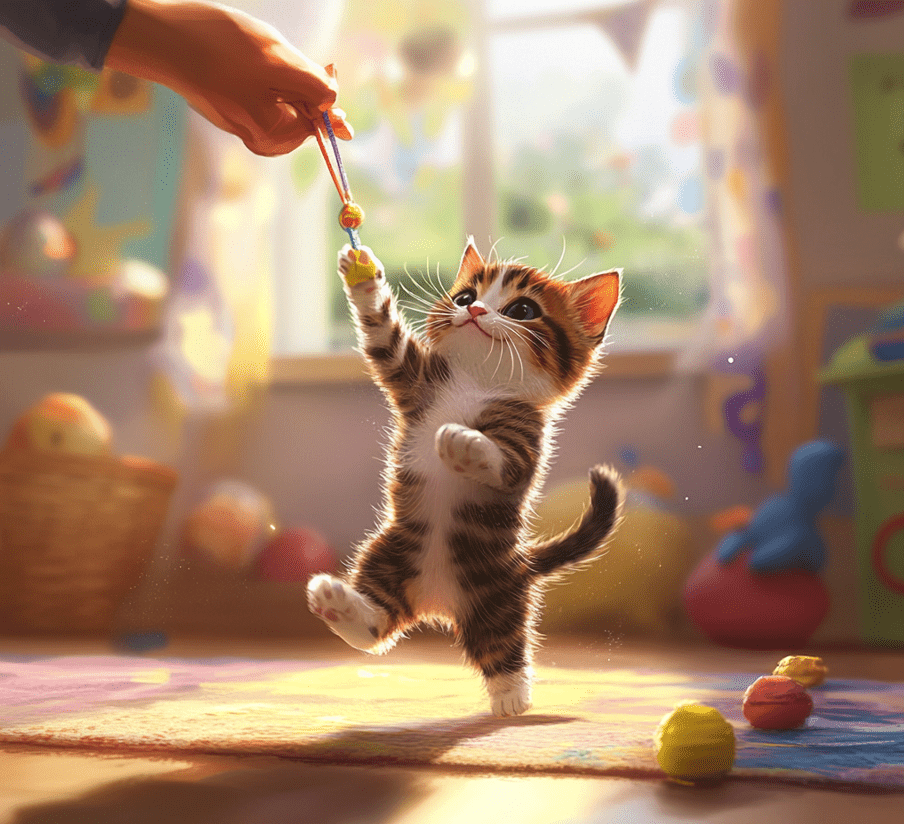
This is vital for building trust and friendship between the two of you and also keeps your kitty very happy. Playing together is good for your bond and develops friendship. If your cat is at all timid or jumpy, consider distance toys such as fishing poles and wand toys. Thanks to this, your cat can be safe and still close to you.
10.Make a Safe Area for Your Cat
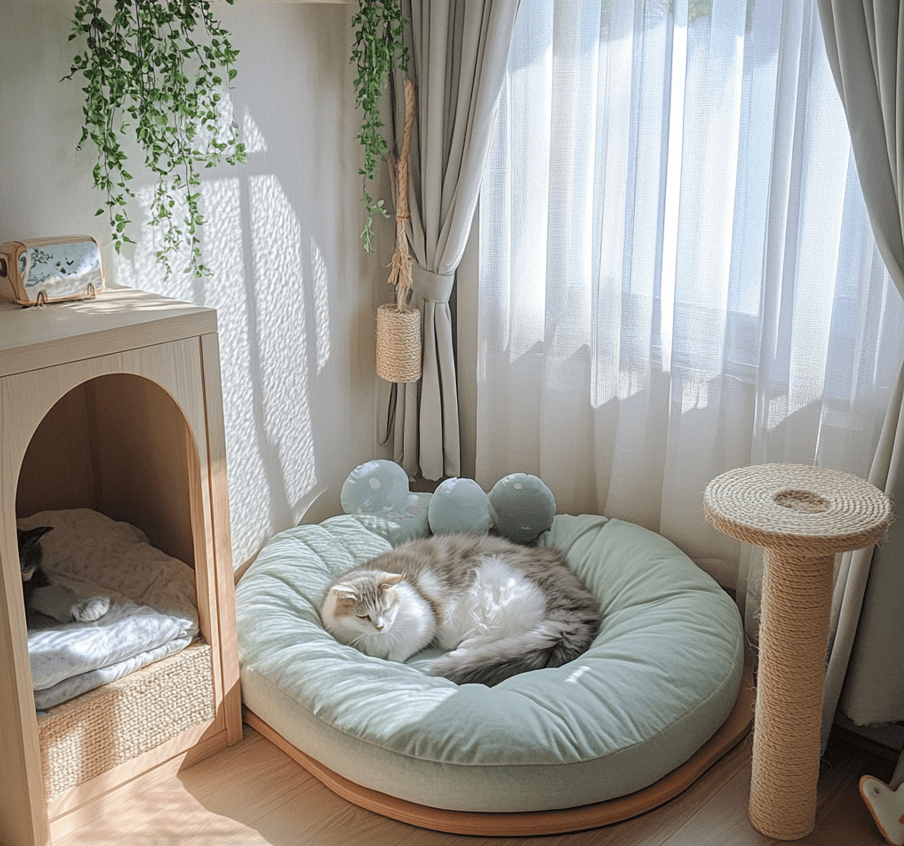
Besides scratching posts and cat trees, your kitty needs its own private place where she can go whenever it feels nervous or requires a calm place to relax. Providing your cat with a space of its own does wonders for trust. With that in mind, if you can add more hiding spots throughout your home (things like cubbyholes), it will help reduce your cat’s stress.
But even well-adjusted cats can feel like they need a quiet place to someday retreat, which is perfectly normal. Although, obviously if your cat still remains under the bed for longer periods, or is lethargic with his food intake and sleeps more in comparison to his normal activity then it’s better for you to consult a vet or feline behaviorist as cats are great at hiding illness.
How Can Cats Prove Their Trust?
Have patience as you apply these suggestions and progress to changes in your cat’s behavior. Perhaps you are left wondering if your cat has really warmed up too. Cat signs of trust and affection are often very sly and snuggly. The more you know and the more you learn how a cat shows his or her love and comfort, then your own heart will be full of warmth, just like for a loved one.
Some signs that your cat trusts you are:
1.Blind eye or narrow eyes in your face
2.Head-butting you
3.Rubbing their faces on you
4.Grooming or licking you
5.Relaxing next to you
6.Sitting on your lap
7.Flashing their backside at you
8.Displaying their belly
9.Sleeping with or on you
10.Purring softly
11.Rubbing against your legs
12.Kneading on or near you
13.Engaging in play with you
14.Start bringing you toys or other objects as gifts
15.Answering positively to the Gift of your Voice
16.Tagging around the house
17.Showing a generally relaxed tail and body position
How Long Does It Usually Take for Cats to Trust You?
The critical socialization period for a cat is between 2 to 7 weeks of age. This is a crucial time for kittens to learn proper socializing with both their fellow littermates and humans. This interaction allows them to develop skills for play, exposure to touch and handling, experience new sights without fear, more curiosity etc.
Experience during this kittenhood time results in longer or shorter feral stages for them to become ideal domestic animals, whether they are from a shelter experience or have been born into a colony of cats. Some cats also need time to feel confident and depending on their early life experiences, it may take days, weeks or even months before a cat fully trusts a new companion.
A bond with a cat can develop naturally by feeding and seeing him on a daily basis but some cats may take more attention and time to feel safe. Remember too that cats may show trust in ways you are not expecting, so keep an open mind when it comes to their displays of trust. Some cats may enjoy sitting on laps, others might prefer slow blinks from afar. Have some patience and who knows, you could be the recipient of all their affection.

